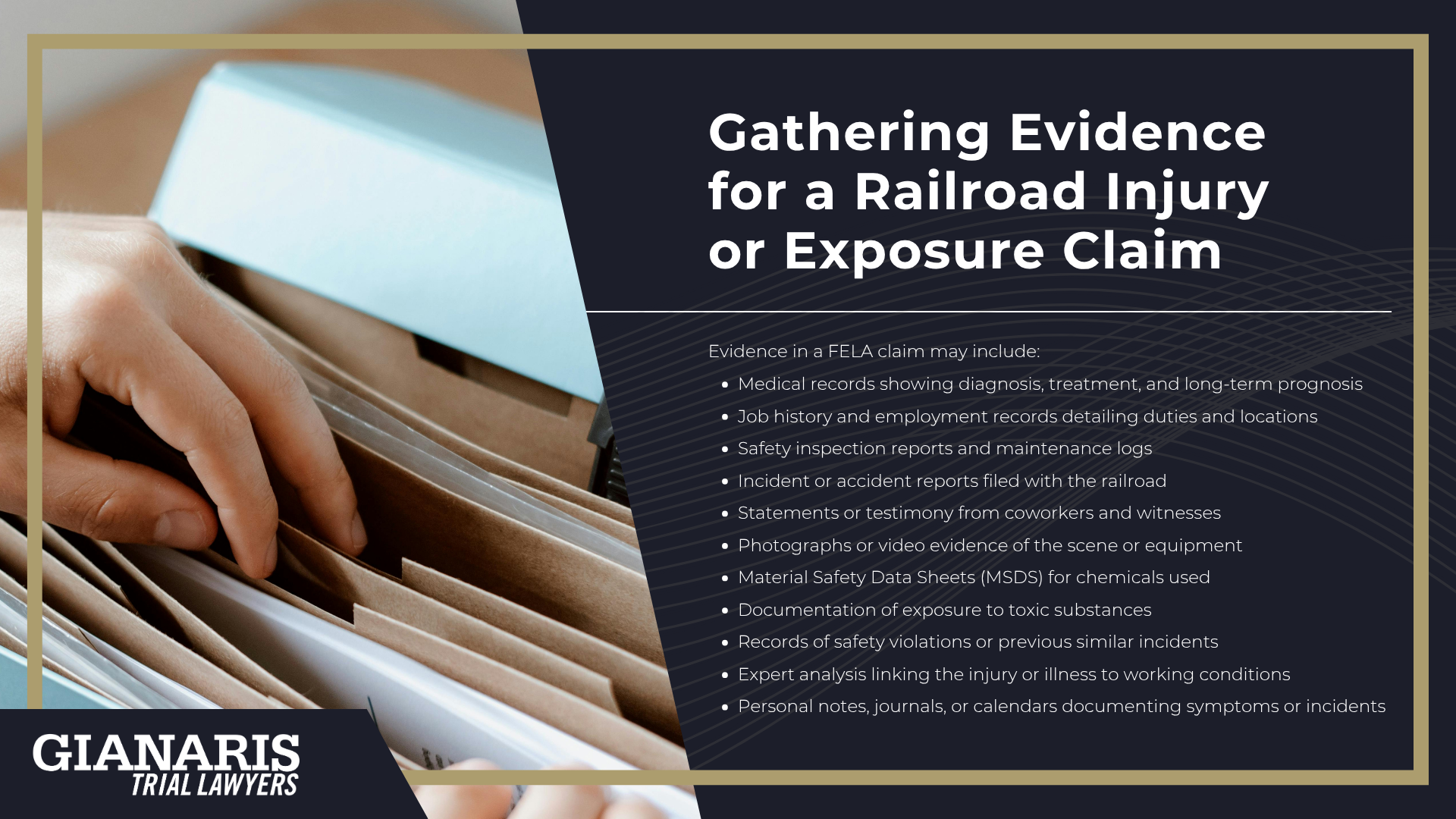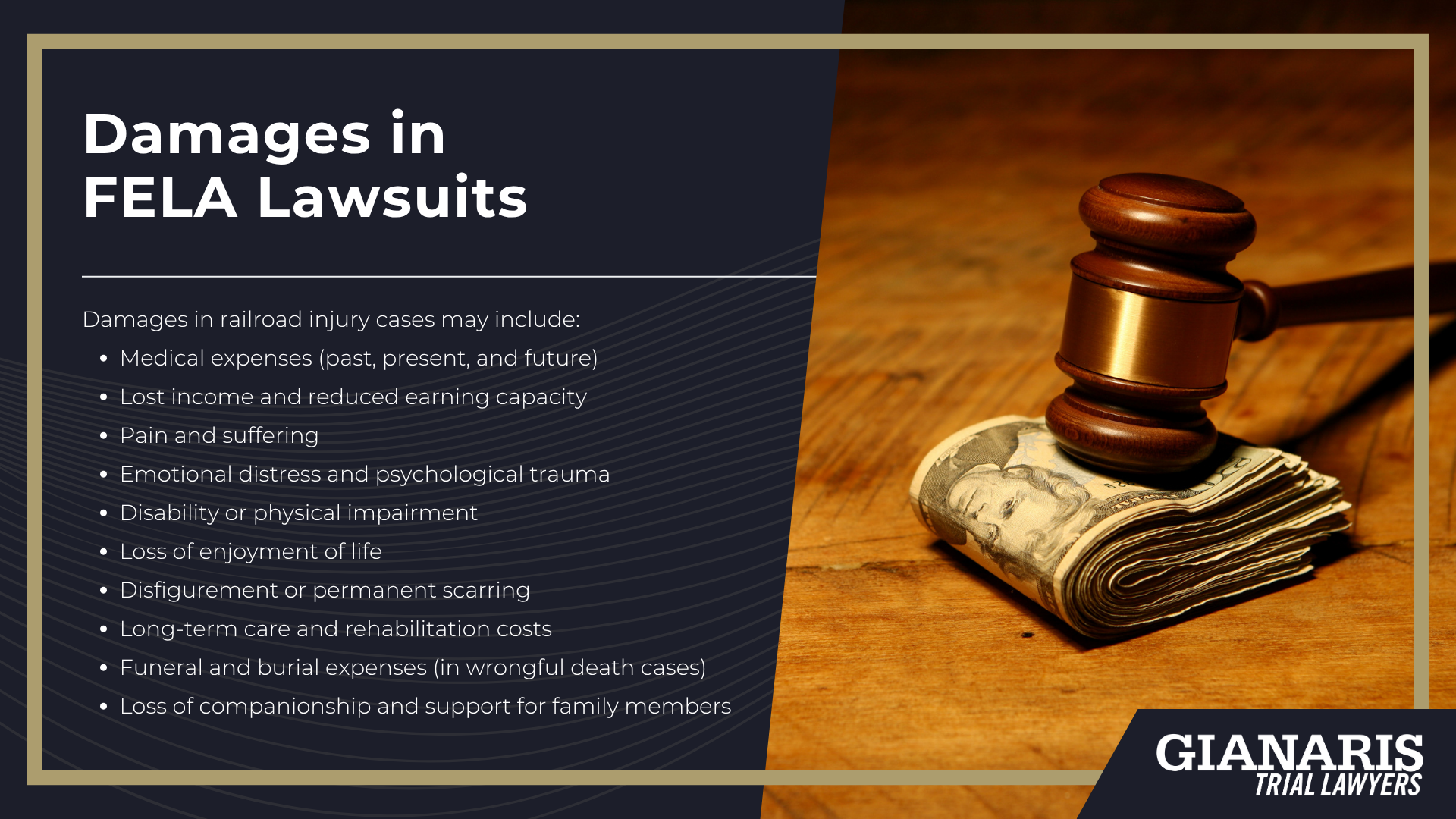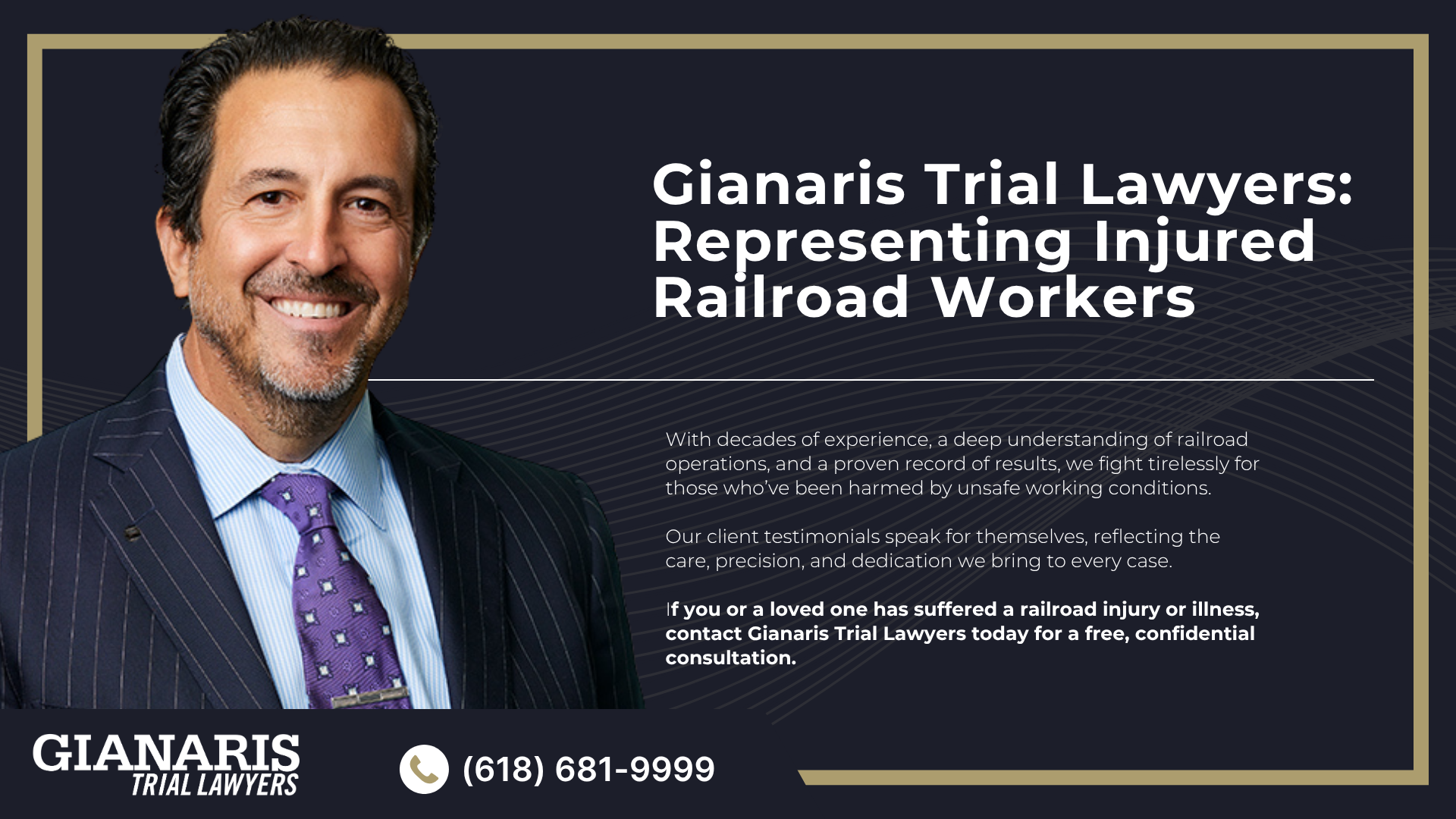Railroad shopmen are tasked with maintaining the backbone of rail operations (locomotives, cars, tools, and infrastructure) often working under intense conditions in repair shops, rail yards, and industrial settings.
This type of railroad work is hands-on, mechanical, and physically demanding, requiring close interaction with heavy equipment, powerful tools, and complex systems like heating systems and braking components.
Whether repairing damaged railcars or rebuilding parts used in track maintenance, shopmen are constantly exposed to conditions that pose both immediate physical dangers and long-term health risks.
From uneven surfaces and confined spaces to loud machinery and airborne particles, the work environment can be unpredictable and unforgiving.
Many tasks involve grinding, welding, sanding, and cutting: processes that expose workers to fumes, dust, and other toxins that are often invisible but harmful over time.
Workplace exposures may build up over years before symptoms appear, making early detection and prevention especially difficult for many workers in these roles.
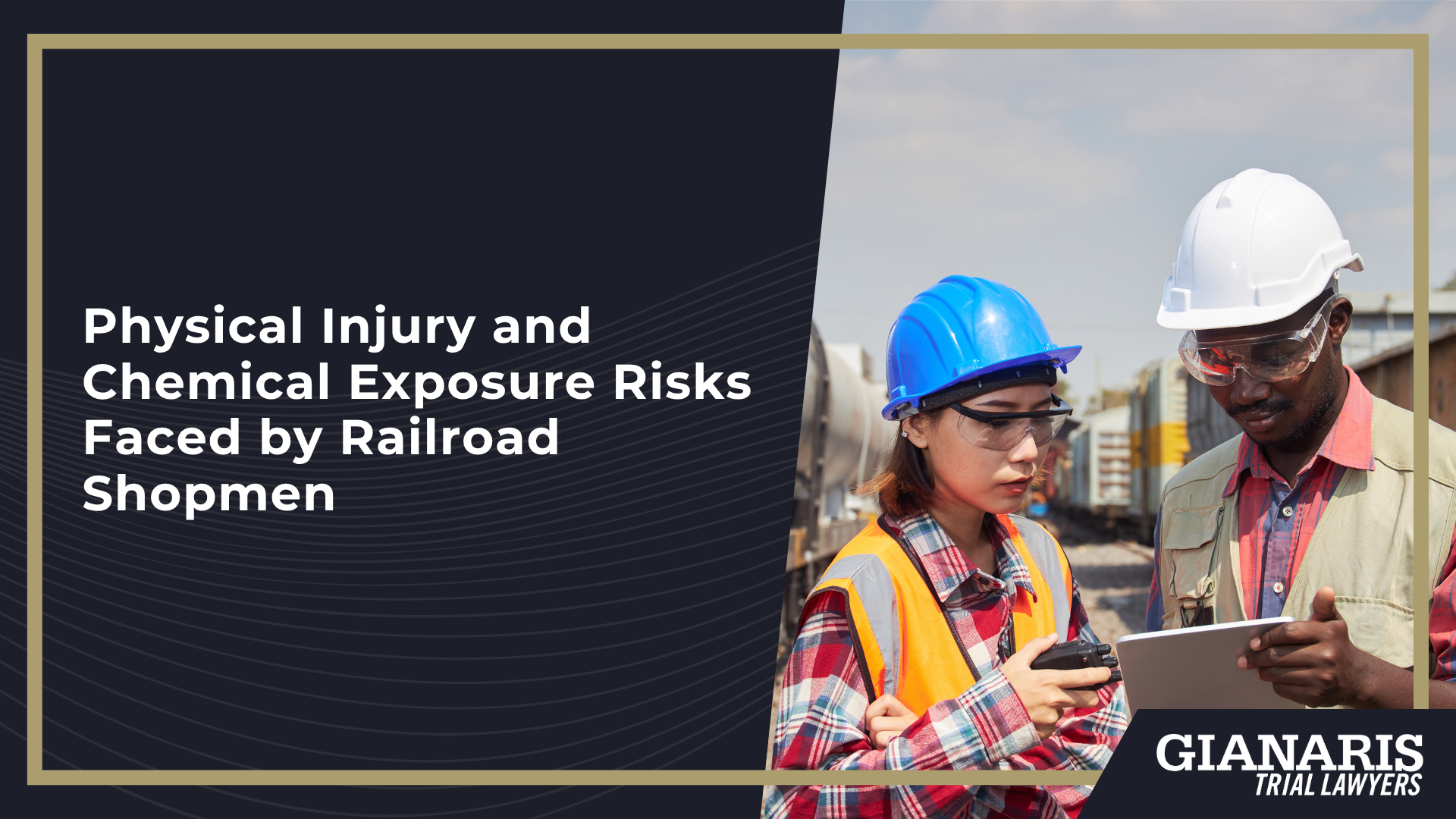
In addition to general shop duties, some shopmen also work as sheet metal workers, machinists, or mechanics, each role carrying its own unique risks.
Gianaris Trial Lawyers understands the daily responsibilities and pressure placed on shopmen, and how those responsibilities can lead to injury or illness when safety protocols fail.
We know that the railroad industry relies on the skill and endurance of its shop workforce, and we also know how often those workers are left unprotected by the companies they serve.
When those protections fall short, we stand ready to fight for accountability and fair compensation.
Physical Injury Risks for Railroad Shopmen
The physical demands placed on railroad shopmen make them especially vulnerable to a wide range of serious injuries.
Many shop-related accidents result in health issues that can cause permanent disability, require long-term care, or even require surgery. Heavy machinery, sharp tools, poor lighting, and fast-paced environments create the perfect storm for catastrophic incidents.
Rail companies are responsible for maintaining a safe work environment, yet injured workers often face the consequences of poor oversight, malfunctioning equipment, or rushed procedures.
Over time, repeated strain and unsafe conditions can lead to debilitating conditions such as back injuries, hearing loss, and chronic pain.
Gianaris Trial Lawyers is experienced in handling injury claims involving both sudden trauma and long-developing complications linked to unsafe shop environments.
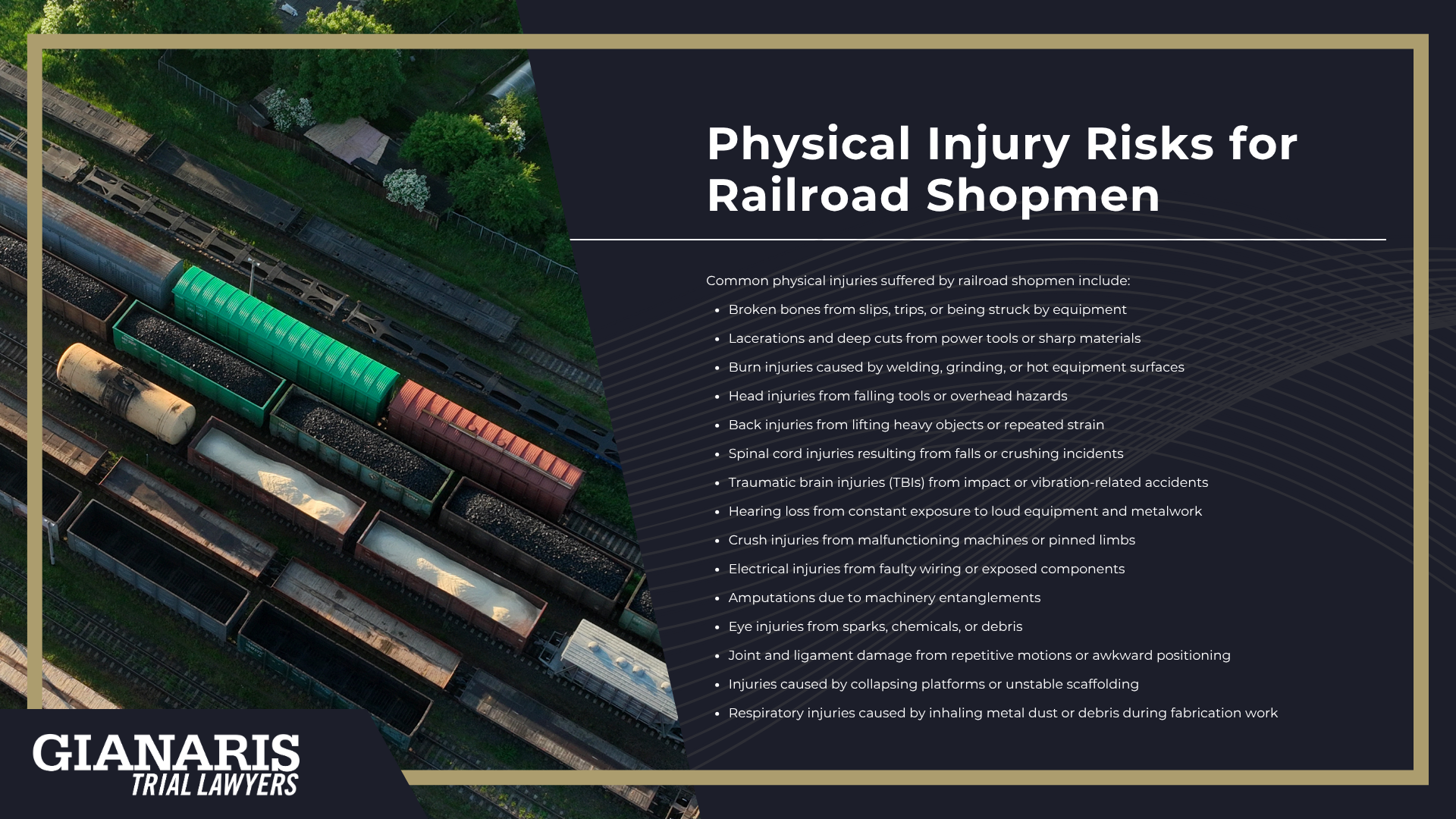
Common physical injuries suffered by railroad shopmen include:
- Broken bones from slips, trips, or being struck by equipment
- Lacerations and deep cuts from power tools or sharp materials
- Burn injuries caused by welding, grinding, or hot equipment surfaces
- Head injuries from falling tools or overhead hazards
- Back injuries from lifting heavy objects or repeated strain
- Spinal cord injuries resulting from falls or crushing incidents
- Traumatic brain injuries (TBIs) from impact or vibration-related accidents
- Hearing loss from constant exposure to loud equipment and metalwork
- Crush injuries from malfunctioning machines or pinned limbs
- Electrical injuries from faulty wiring or exposed components
- Amputations due to machinery entanglements
- Eye injuries from sparks, chemicals, or debris
- Joint and ligament damage from repetitive motions or awkward positioning
- Injuries caused by collapsing platforms or unstable scaffolding
- Respiratory injuries caused by inhaling metal dust or debris during fabrication work
Chemical Exposure Risks for Railroad Shopmen
Railroad shopmen often work in enclosed or poorly ventilated environments where occupational exposure to toxic chemicals is a daily part of the job.
Over time, long-term exposure to diesel byproducts, solvents, and industrial materials can lead to serious health complications, including various cancers and chronic respiratory diseases.
Tasks like repairing running locomotives, cutting metal, or maintaining railroad tracks and railroad ties often involve contact with diesel fuel, benzene exposure, metal dust, and other carcinogens that have been linked to deadly outcomes.
Inhaling diesel fumes, grinding rust, or handling asbestos-containing parts can cause lasting damage to the lungs, skin, and internal organs.
The Federal Railroad Administration has recognized that diesel exposure, asbestos exposure, and other hazardous shop conditions are major contributors to railroad-related illnesses.
Shopmen may develop lung cancer, chronic bronchitis, or unexplained respiratory irritation, often years after the exposure began.
In some cases, workers suffer chemical burns from leaking fluids or direct contact with degreasers and industrial solvents.
Exposure is often cumulative, with symptoms appearing slowly, making it difficult to immediately link cancer diagnosis or other illnesses to workplace conditions without legal and medical support.
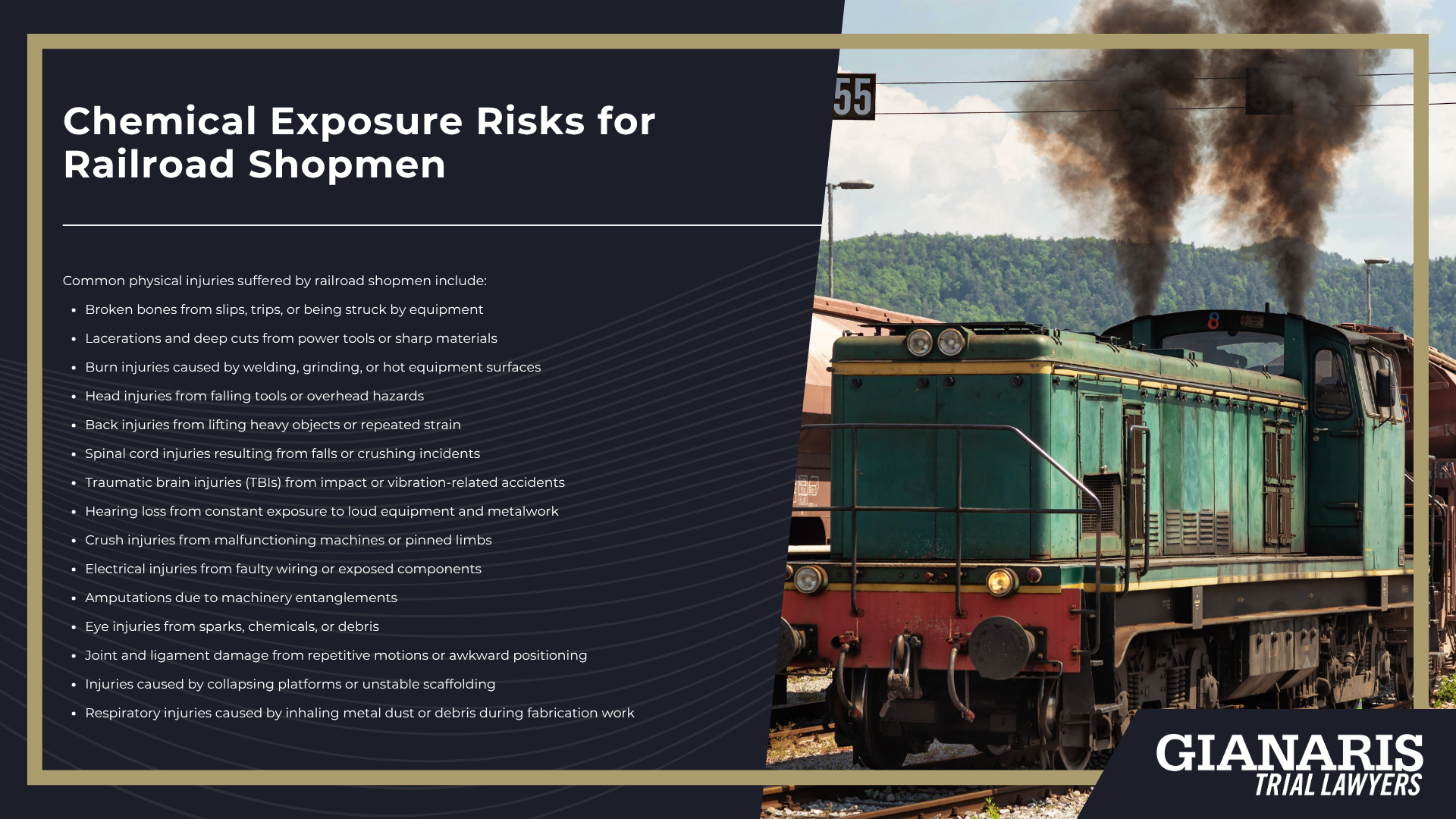
Common chemical exposure risks for railroad shopmen include:
- Diesel exhaust exposure from working near idling or running locomotives
- Benzene exposure through cleaning agents, solvents, and degreasers
- Asbestos exposure from brake pads, insulation, and older engine components
- Prolonged contact with diesel fuel during repair or fueling operations
- Inhalation of welding fumes containing heavy metals and toxic gases
- Exposure to hazardous materials stored or spilled in shop areas
- Skin contact with solvents, oils, and lubricants causing chemical burns
- Inhalation of silica dust from grinding or cutting components
- Repeated contact with pesticides or herbicides used on railroad ties
- Inhalation of toxic fumes during paint stripping or rust removal processes
- Exposure to metal dust and airborne particles from fabrication tasks
- Contact with degreasers and coolants without proper PPE
- Airborne insulation fibers from engine compartments and piping systems
- Contact with industrial adhesives or sealants containing VOCs
- Residual chemical exposure from contaminated work surfaces or equipment
These exposures may result in delayed but life-altering health conditions, and Gianaris Trial Lawyers has the experience to connect those exposures to the employer’s failure to protect its workers.



